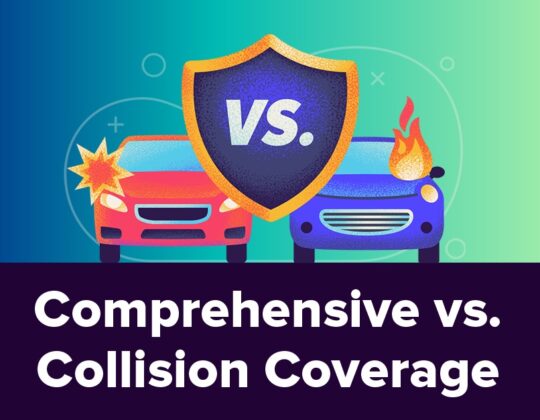Life insurance is a crucial financial tool that provides protection and peace of mind to individuals and their families. However, many people are unsure about the process of obtaining life insurance coverage, including whether a medical exam is required to qualify for a policy. In this article, we’ll explore the role of medical exams in the life insurance application process, when they are required, what they entail, and how they impact your ability to obtain coverage.
Understanding Life Insurance Medical Exams:
Life insurance medical exams are a standard part of the underwriting process for many life insurance policies. The purpose of these exams is to assess your overall health and evaluate any potential risks that may affect your insurability and the cost of your premiums. Insurance companies use the information gathered during the medical exam, along with other factors such as age, gender, lifestyle, and medical history, to determine your eligibility for coverage and calculate your insurance rates.
When Are Medical Exams Required?
Not all life insurance policies require a medical exam, but they are commonly used for policies that provide higher coverage amounts or longer terms. Here are some scenarios in which a medical exam may be required:
- High Coverage Amounts: Insurance companies may require a medical exam for policies with coverage amounts above a certain threshold. This is because higher coverage amounts represent a greater financial risk for insurers, and they want to ensure that they accurately assess the risk associated with insuring you.
- Long-Term Policies: Permanent life insurance policies, such as whole life or universal life insurance, typically require a medical exam, as they provide coverage for the insured’s entire lifetime. Since these policies involve a longer commitment and higher potential payouts, insurers may want to conduct a thorough assessment of your health before issuing coverage.
- Age and Health Factors: Your age, health status, and medical history can also influence whether a medical exam is required for life insurance coverage. Generally, younger individuals in good health may be able to obtain coverage without a medical exam, while older individuals or those with pre-existing medical conditions may be required to undergo an exam to qualify for coverage.
What Does the Medical Exam Involve?
Life insurance medical exams are relatively straightforward and typically involve the following components:
- Health Questionnaire: You may be asked to complete a health questionnaire that covers information about your medical history, current medications, lifestyle habits (such as smoking or drinking), and family medical history.
- Physical Examination: A licensed medical professional, such as a nurse or paramedic, will conduct a physical examination, which may include measurements of height, weight, blood pressure, and pulse rate.
- Blood and Urine Samples: You may be required to provide blood and urine samples for laboratory testing. These samples are analyzed to assess your overall health, check for underlying medical conditions, and evaluate risk factors such as cholesterol levels and blood sugar levels.
- Additional Tests: Depending on your age, health status, and insurer requirements, you may be asked to undergo additional tests or screenings, such as an electrocardiogram (EKG) to assess heart health or a lipid panel to measure cholesterol levels.
Impact on Insurance Eligibility and Premiums:
The results of the medical exam play a significant role in determining your eligibility for life insurance coverage and the cost of your premiums. If the exam reveals that you are in good health with no significant medical issues, you may qualify for standard or preferred rates, which are typically lower than rates for individuals with health complications. Conversely, if the exam identifies health concerns or risk factors, you may be classified as a higher risk applicant and charged higher premiums or even denied coverage altogether.
What If I Prefer to Avoid a Medical Exam?
If you prefer to avoid a medical exam when applying for life insurance coverage, you still have options available:
- No Medical Exam Policies: Some insurance companies offer life insurance policies that do not require a medical exam. These policies typically have simplified underwriting processes and may be more accessible for individuals who prefer a faster and more convenient application process. However, these policies may have lower coverage amounts and higher premiums compared to policies that require a medical exam.
- Guaranteed Issue Policies: Guaranteed issue life insurance policies are another option for individuals who want to obtain coverage without undergoing a medical exam or answering health questions. These policies are typically available to individuals between certain age ranges and guarantee coverage regardless of health status. However, guaranteed issue policies may have limited coverage amounts and higher premiums compared to traditional life insurance policies.
Conclusion:
Life insurance medical exams are a standard part of the underwriting process for many life insurance policies, particularly those that provide higher coverage amounts or longer terms. While the idea of undergoing a medical exam may seem daunting, it’s essential to understand that these exams are designed to assess your overall health and ensure that you receive the appropriate coverage for your needs. By providing insurers with accurate information about your health and lifestyle, you can help ensure a smooth application process and obtain the coverage you need to protect yourself and your loved ones financially. If you prefer to avoid a medical exam, there are alternative options available, such as no medical exam policies or guaranteed issue policies, although these may come with certain limitations and considerations. Ultimately, it’s essential to carefully weigh your options and consult with an insurance professional to determine the best course of action based on your individual needs and preferences.










